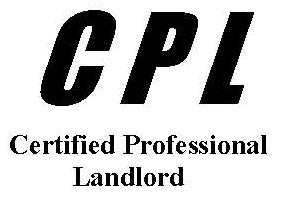This is an updated and improved article from one we previously wrote a few years back.
I have probably had at least a hundred people ask me whether or not they should get a Florida real estate license in order to invest in Orlando real estate. There is no quick and easy answer to this question. The answer really depends on what you plan to do in your investment career.
 (Registered Trademark of NAR)
(Registered Trademark of NAR)
A real estate license is typically for someone who wants to work with other people to help them buy, sell, or lease their real estate. That is what a traditional real estate licensee (the legal term in Florida is "sales associate") does. Most investors are not planning on working with others, but I do know many sales associates who invest in real estate as a side business.
There are really three main reasons to get a real estate license outside of doing traditional Realtor services.
Reason #1 is to obtain access to the local Multiple-Listing Service (MLS for short). The MLS is the database used by nearly all residential Realtors to advertise their listings to other Realtors and to get their listings posted onto major websites like Realtor.com, Homes.com, Trulia, Zillow, etc. The MLS has information on all listings past and present in the area including solds and expireds. It makes checking for comparable sales easy. MLS access can only be obtained by dues paying Realtors®, assistants to dues paying Realtors®, and licensed real estate appraisers. A few people have asked me to let them be my assistant, but our local MLS has a limit of 2 assistants per Realtor® because they know that people try to get around their licensing rules. There is also a way to be what is known as a "Thompson Broker" and join the MLS without being a dues paying Realtor®. To be a Thompson Broker, you still need a real estate license and the annual fees are about double those of Realtors®, so I do not see any benefit in going that route.
Reason #2 is to legally get paid commissions or referral fees without being a principal in the transaction. Some investors are going to be quite upset by what I say here, but it is the truth. In Florida unless you are a principal in a transaction AND you have "substantial consideration" (meaning money to possibly forfeit) on the line to tie up the contract, you cannot bring buyers and sellers together and get paid a fee. You also need a real estate license to be a property manager for another person. In fact in Florida it is a 3rd degree felony to do any of this without a license and the presumption is upon you to prove that you are not acting illegally. (Reference: Chapters 475.41, 475.42, and 475.43 Florida Statutes.) I know several investors who have been fined by the State of Florida for unlicensed real estate activities. I will not beat on this any further except to ask you to check the law for yourself. My goal here is not to scare anybody but to open your eyes to some mis-information that is being taught out there. You can read our article "What is the difference between a real estate wholesaler and a real estate broker" for more details.
Reason #3 is access to all the online contract forms. The FAR/BAR contract, comprehensive addendum (some 20+ pages long), Supreme Court approved lease, FAR listing agreements, and dozens of other Florida standardized forms. Most of the forms can be filled out either online or saved onto your computer's hard drive for future use. And then edited and emailed to others in the transaction.
Here are a few of the other positives for obtaining a license.
#4 The educational benefits from courses offered and trade magazines and newsletters.
#5 Access to the legal hotline to answer all your real estate legal questions.
#6 The technology hotline. They will actually spend hours fixing computer software issues online at no charge.
#7 Ability to show properties to yourself without needing another sales associate to accompany you. A big obstacle if you are making lots of offers on listed properties.
#8 Favorable income tax rules regarding active vs. passive income and tax write-offs. (Ask your tax adviser.)
#9 You can offer to list properties that do not make sense to purchase as an investment. Many times we offer to buy the property first and then list the property second - depending on the deal of course.
Now, for the negatives for obtaining a license.
#1 Educational requirements - pre-licensing, post-licensing, continuing education, and several tests are mandatory.
#2 The costs in both time and money for the license, the application, and annual dues with the State, the board of Realtors®, and the MLS. You only need to join the board of Realtors® if you want access to the MLS though; you can still legally get paid a commission without joining the board of Realtors® - our firm has a referral company for people that only do the occasional deal but want to keep their license active.
#3 Having to abide by the State real estate laws and the board of Realtors® Code of Ethics. Just because you are unlicensed does not mean that you do not have to abide by the State laws. Plenty of investors have gotten Cease and Desist orders from the State for the "investment activities" that were really just unlicensed brokerage activities. Read Chapters 475.01 and 475.011, Florida Statutes for what constitutes brokerage activities and who is exempt.
#4 Disclosure of your real estate license to potential buyers and sellers. Some "gurus" say this is a negative. To me it is actually a positive. Why would a seller or buyer want to deal with some unlicensed investor (who might just be a scam artist) when they can deal with someone that is regulated by the State of Florida? I use this argument all the time when buying property and helps me clinch the deal.
#5 Courts may hold sales associates to a "higher standard" then they would a non-sales associate. Another "guru" negative for not getting a license. However if you are doing lots of deals and are advertising yourself as a professional investor, you are going to be held to a higher standard than a layperson anyway. If you go to court, you still lose time and money even if you prevail. Most of the people that I know who have been sued by a seller or buyer or partner in a bad real estate investment deal did not have a license. And oftne they got sued because they were ignorant of the various laws regarding real estate - laws that get taught in the pre-licensing real estate 101 class.
So what is my advice on getting a license? If you do not plan on listing and showing properties, do not get a license at least in the beginning. Do a few deals and find out if real estate investing is really what you want to do. After a few deals, then you can decide if you want to take the step of getting a license. Having the license is not for everyone, and there are plenty of successful investors that do not have a license. I have found it is better to get a license if you are doing many transactions on a regular basis or if you have a large portfolio of properties that you are working with. The more volume you do, the more you probably need the license. It does not necessarily need to be you that obtains the license though. I know many investment teams where a spouse, parent, child, friend, or employee gets the license and lets the other team members be their "assistant." However if you are an assistant, make sure that you are not using the other's person license as a proxy for you to gain MLS access and negotiate deals while they sit idly by doing nothing. Do's and Dont's For Employing Personal Assistants.
I hope this article has been enlightening to you. I do recommend that everyone take the real estate pre-licensing course. You can take it at many of the local community colleges or real estate schools or even online. Even if you never get a real estate license, the course goes over many of the basics of real estate, the contract, and Florida law. The course can be a real eye-opener to investors. I have talked to a few investors that took the course and then realized that they had been breaking the law for years and did not even know it.
If you need help determining whether or not you should get a real estate license, feel free to call me and we can discuss your situation. Until next time ... happy investing.







Comments(2)